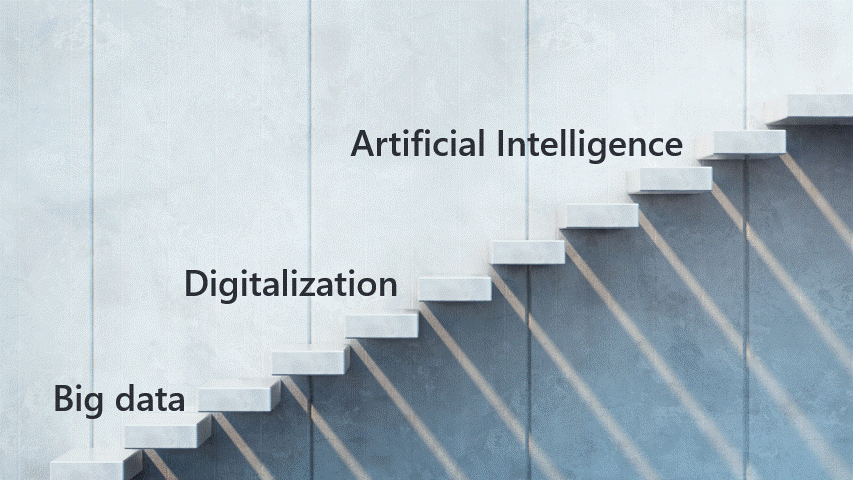When I started working as an AI advisor in the consulting industry some years ago, my sales rep colleagues repeatedly came asking for a PPT slide with use cases for AI. They needed sales pitches describing lighthouse examples sprinkled with some fairy dust, preferably worth a 6-7 digit number. I repeatedly tried to explain that the use of machine learning is not limited to a selection of three use cases per industry, and that it is rather a question of understanding the potential for using data for intelligent automation of operational processes in any company. "Yes yes, but can you provide me that list of use cases by tonight, please". About a decade and half ago, big data was the "hot stuff". Huge projects, enormous amounts of money. And the big data ended up somewhat more structured, somewhat more accessible, but still mostly just hanging around somewhere in various storages. Then 'digitalization' became the "new hot stuff"; using and generating even more data. Artificial intelligence, AI for short, is the natural extension of digital transformation, namely how to apply mathematical methods to make sense of the data we already have or may get access to. The trouble is, though, that AI has become the collective term for everything from very simple software robots (RPA) to highly advanced language models (chat bots) and military-purpose drones, and everything in between. For a lay(wo)man, it may be a very daunting task to attempt to navigate in this landscape.

This is why you as a C-level or board director need to have at least a basic understanding of what AI is, which technologies are involved, and how these very powerful tools may impact your business and the society in general. Even more importantly, you need to understand what it is NOT; it's NOT magic, it's NOT a silver bullet, and it is NOT harmless.
Even more importantly, you need to understand what it is NOT; it's NOT magic, it's NOT a silver bullet, and it is NOT harmless.
Here are three essential reasons why every C-level and board director needs to understand the basics of artificial intelligence:
Digital transformation is in 2022/2023 one of the most predominant topics on any C-suite and board agenda. The examples of new AI-based business models are numerous, every day. Almost every company is a data company. Only those who understand and utilize the value of those data can safely assume that they have a chance of being around in a handful of years from now. Is your company planning to be around in 2027?
Using data-driven algorithms to automize business processes and decisions can reap substantial benefits. At the same time, those exact same algorithms may result in outcomes not perceived as fair by your customers or your employees. How may that affect your market reputation? The European Commission is working on a new harmonized regulation, the AI Act, that spans all data-driven decision-making applications, not only what we perceive as 'artificial intelligence'. As a C-level or board director you will be responsible for compliance. The fines will be up to 50% higher than for GDPR breaches. Are you willing to take that risk? Are your company's owners willing to take the risk on you taking that risk?
Data-driven technologies in general, and artificial intelligence technologies in specific, are very power hungry. The electricity consumption related to the processing of these models can be as much as the equivalent of hundreds of households for a full year. This may become expensive, in particular in a Europe with potential power restrictions in the months to come. Your ESG initiatives and reporting may also be challenged; how does the use of artificial intelligence impact your company's holistic environmental footprint?
Understanding the basics of artificial intelligence should be as mandatory for any C-level and board director as having a computer. The technologies and the methods are omnipresent in the digital landscape. In 2022 and forward there is no digital transformation without one or more components from the artificial intelligence domain. Every company, with only a very few exceptions, is a data company. The development and application of artificial intelligence is therefore in truth a leadership topic.
Understanding the basics of artificial intelligence should be as mandatory for any C-level and board director as having a computer.
In my talks on artificial intelligence, I aim to remove the hype and the myths, and help my audience to get a better understanding of the pragmatic realities. At the same time, I connect dots across conventional domains to give the audience new perspectives on the future ahead. In particular, I focus on issues related to sustainability and responsibility, including the coming AI Act from the European Commission.
Please reach out to book a keynote, boardroom sparring, or master class.